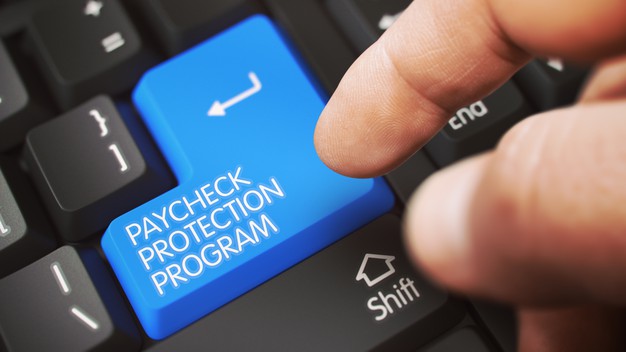
Do you know enough about laws and regulations regarding payroll processing and paystubs? Well, you probably don’t, because it’s not something that’s often talked about. A lot of things regarding paystubs are shrouded in mystery and pretty much all people know about it is it’s a piece of paper that showcases how much money you’ve made in the previous month.
However, did you know that certain rules and regulations dictate what goes on the real paystub when do you receive it and how? Well, if you didn’t – don’t worry, you’re about to learn. We went out and did a little bit of research to try and find out what are the rules that regulate payroll processing and whether or not an employer is obligated to give out a real pay stub to an employee or not. Without further ado, let’s check out what we have found out.
What’s A Paystub?

Before we go on and move to the point at hand – we have to go over some basics. A real pay stub is essentially a summary sheet, written, printed, or electronic, that lists all the necessary details about an employee’s pay. The real pay stub consists off:
- Gross Wages – The overall amount of money earned and amassed over the set period of time, for instance, a month. A gross wage is what you would’ve made if there were no taxes, insurance, or any other kind of deduction.
- Deductions – Everyone’s the least favorite part of a real pay stub. Deductions can be various. The most common ones are taxes. You have to pay federal income taxes, as the federal government is, by law, entitled to a portion of your earnings. Next up, we have Social Security and Medicare taxes, which are commonly known as FICA. On top of those, you may end up with state tax deductions, health or any other kind of insurance, 401Ks, and more.
- Net Pay – Finally, you’re left with a net pay, which is the amount of money you get to take home – post taxes and deductions.
Laws & Regulations Regarding Paystubs
So, now that we’ve gone over what a real paystub is and what kind of information you can find on it, let’s move and to laws and regulations put into place to ensure everything regarding employee’s pay is handled according to law. Let’s begin.
1. Is It Illegal Not To Give Out Paystubs?

This is the most common question people ask and it’s a good one. However, the answer we’re about to give you might not be satisfactory to you. Our answer is – it depends.
If you’re wondering how is that even possible, how can it be legal and illegal at the same time – be patient. We’re going to get to it in just a second. For now, just remember that it is both – depending on where you live.
2. Is It Legal To Use Payroll Software To Process Payroll?

It’s one thing to process wages, by hand, for a handful of people, but, what happens when you need to process hundreds of check stubs? You need assistance and that’s where payroll processing software comes in. It makes the process that much easier and faster and yes – it is legal to use software to handle employees’ wages and according to www.paystubsnow.com, anyone with a large company should probably use one.
3. Giving Out Paystubs Isn’t Regulated By Federal Law

This might come as a surprise but there is no federal law that states that an employer is legally obligated to provide their employees with a real pay stub. As you can see, our answer to the first question is starting to make a little bit of sense right now.
However, that doesn’t mean that the employer can just get by without having any financial records on their workers’ wages. The FLSA, or Fair Labor Standards Act is what regulates financial record keeping. Under FLSA, every employer must have a record of their employee’s salaries, hourly wages, hours worked, gross wages, net wages, and so on.
4. Giving Out Paystubs Is Regulated By State Laws

Let us circle back to our first question. Since there are no federal laws in regards to the real paystub, there had to be some state laws that lay out the rules and there are. This is why we have said that it depends, whether not getting a real paystub would be deemed illegal or not. In some cases, it might be and in others, it might not. It all depends on where you live.
5. Differences Between State Laws

Based on various state laws you can receive your paystubs in printed or electronic format or not receive them at all. However, that’s not all there is. Within 50 states, there are 5 main differences when it comes to paystub laws. Here they are.
- The paystubs are not required by state laws – There are 9 states in which it is not legally required to provide your employees with a real pay stub. You can, if you want, however.
- Paystub access is required by state laws – There are 26 states in which, by law, employers are required to provide their employees with a physical or an electronic copy of a paystub.
- A physical paystub is required by state laws – There are 11 states in which the employers are legally obligated to provide their employees with a physical copy of a real pay stub.
- Electronic paystub opt-outs – There are 3 states which allow the employees to opt-out from receiving electronic paystubs. Instead, they’d get physical copies.
- Electronic opt-ins – A single state has a law in which an employee must consent to receive electronic paystubs. Until they do, they will receive physical copies.
6. Your Employer Can’t Hide Payroll Information From You

There are states, in which your employer, isn’t legally required to give you a real pay stub. However, because of the FLSA, they have to keep payroll records and if you request to see your paystub – your wish should be granted. In some instances, if you’re not presented with a paystub within 21 days of your formal request – you’re entitled to financial severance and other benefits as well.
As you can see, the laws are somewhat different from state to state. You may or may not receive a real paystub at the end of the month, depending on where you live, but, if you wish to receive one – you will.



